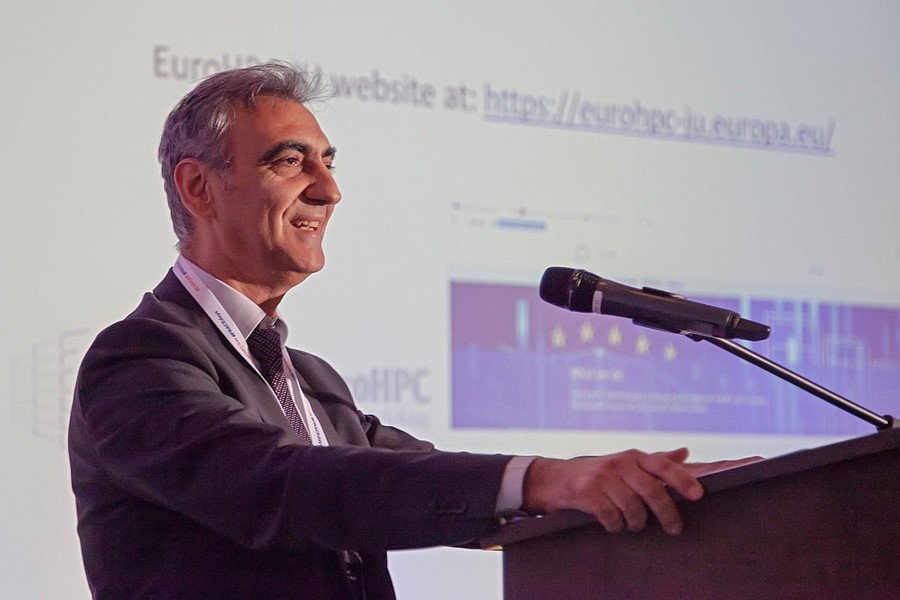Thomas Skordas: "Graphene is on the way to changing our lives"
Thomas Skordas, Director for Digital Excellence and Science Infrastructure, takes a look at the latest developments in graphene research on the occasion of Graphene Week 2019 – Europe's leading graphene conference, which brings together the latest innovations, leading-edge technology and research on graphene and other layered materials.
Graphene Week is a chance to hear about recent scientific discoveries and technological advances in graphene, one of the key technology areas in Europe today. The great strength of the Graphene Flagship is that it provides a nurturing environment for top scientists, researchers and industry to discover new uses for this fascinating material, which consists of a single layer of carbon atoms.
This year alone, the Flagship has scored some significant achievements. For example, it has used graphene to increase the lifetime of Perovskite solar cells, the most efficient way of converting sunlight to energy in existence, when facing conditions such as heat and moisture. Once they are commercially viable, they could be a game changer for the clean energy transition. Flagship researchers have also built silicon-graphene coin cell batteries, of which a high proportion of the components can be recycled. This patented technology forms the basis of the spin-off Bedimensional, which received a private investment of €18 million in 2018, and test production is expected to start in the coming months.
Graphene has the potential to change our lives, and we are witnessing more and more graphene product launches and spin-offs. The Flagship also regularly presents new demonstrators at events, such as the mobile phone-related technology shown at Mobile World Congress: this video shows what they presented. We are also looking forward to the publication in the next few weeks of a 400-page open-access book, the work of 70 co-authors, with information on how to produce graphene and up to 5000 other layered materials. It will be a “bible” for students and industrial manufacturers interested in the fabrication processes of these materials. We have come a long way: merely fifteen years ago, graphene was isolated for the first time ever, in pioneering experiments using pieces of Scotch tape, but today the methods for synthesising thousands of similar materials are available to anyone in the world.
This is an excerpt of a blog post by Thomas Skordas published on the European Commission's Digital Single Market blog. Click here to read the whole article.
Graphene has the potential to change our lives, and we are witnessing more and more graphene product launches and spin-offs.
EU Director for Digital Excellence and Science Infrastructure

Thomas Skordas, EU Director for Digital Excellence and Science Infrastructure, says: "Graphene on the way to changing our lives."




